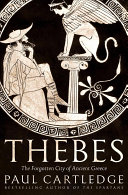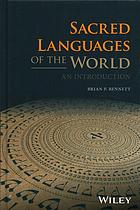The Other Psychology of Julian Jaynes Ancient Languages Sacred Visions and Forgotten Mentalities 1st Edition by Brian Mcveigh 1845409736 9781845409739
$50.00 Original price was: $50.00.$25.00Current price is: $25.00.
The Other Psychology of Julian Jaynes Ancient Languages Sacred Visions and Forgotten Mentalities 1st Edition by Brian Mcveigh – Ebook PDF Instant Download/Delivery: 1845409736, 9781845409739
Full download The Other Psychology of Julian Jaynes Ancient Languages Sacred Visions and Forgotten Mentalities 1st Edition after payment

Product details:
ISBN 10: 1845409736
ISBN 13: 9781845409739
Author: Brian J. Mcveigh
In his provocative but critically acclaimed theory about the origin of introspectable mentality, Julian Jaynes argued that until the late second millennium people possessed a different psychology: a “two-chambered” (bicameral) neurocultural arrangement in which a commanding “god” guided, admonished, and ordered about a listening “mortal” via voices, visions, and visitations. Out of the cauldron of civilizational collapse and chaos, an adaptive self-reflexive consciousness emerged better suited to the pressures of larger, more complex sociopolitical systems. Though often described as boldly iconoclastic and far ahead of it time, Jaynes’s thinking actually resonates with a “second” or “other” psychological tradition that explores the cultural-historical evolution of psyche. Brian J. McVeigh, a student of Jaynes, points out the blind spots of mainstream, establishment psychology by providing empirical support for Jaynes’s ideas on sociohistorical shifts in cognition. He argues that from around 3500 to 1000 BCE the archaeological and historical record reveals features of hallucinatory super-religiosity in every known civilization. As social pressures eroded the god-centered authority of bicamerality, an upgraded psychology of interiorized self-awareness arose during the Late Bronze Age Collapse. A key explanatory component of Jaynes’s theorizing was how metaphors constructed a mental landscape populated with “I’s” and “me’s” that replaced a declining worldview dominated by gods, ancestors, and spirits. McVeigh statistically substantiates how linguo-conceptual changes reflected psychohistorical developments; because supernatural entities functioned in place of our inner selves, vocabularies for psychological terms were strikingly limited in ancient languages. McVeigh also demonstrates the surprising ubiquity of “hearing voices” in modern times, contending that hallucinations are bicameral vestiges and that mental imagery – a controllable, semi-hallucinatory experience – is the successor to the divine hallucinations that once held societies together. This thought-provoking work will appeal to anyone interested in the transformative power of metaphors, the development of mental lexicons, and the adaptive role of hallucinations.
Table of contents:
Chapter 1: Julian Jaynes and the Promise of the “Other” Psychology
Chapter 2: The Neurocultural Malleability of Psyche
Chapter 3: Bronze Age Super-Religiosity: Linguistic Evidence for Pre-conscious Mentalities
Chapter 4: Ancient China: Social Complexity, Cognitive Adaptation, and Linguistic Change
Chapter 5: The Metaphors of Mind-Words in Modern Mandarin
Chapter 6: Hallucinations as Superceptions: Hearing Voices as Adaptive Behavior
Conclusion: Final Thoughts: Psychohistorical Ruptures and Stratigraphic Psychology
Appendix A: Types of Ceptions
Appendix B: Types of Adaptive Mentalities
Appendix C: Statistical Analyses for Chapter 3
Appendix D: Datasets for Chapter 3
Appendix E: Statistical Analyses for Chapter 4 and 5
Appendix F: Datasets for Chapters 4 and 5
Appendix G: Abnormal Hallucinations
People also search:
the julian jaynes collection
julian jaynes theory of consciousness
julian jaynes books
julian jaynes the origin of consciousness pdf
psychology of jane eyre
Tags: Brian Mcveigh, Psychology, Julian, Ancient
You may also like…
History - American Studies
The Politics of Losing: Trump, the Klan, and the Mainstreaming of Resentment Rory Mcveigh
Politics & Philosophy - Anthropology
Moral Psychology with Nietzsche Brian Leiter 9780199696505,0199696500
History - Ancient History
Business & Economics - Management & Leadership
Relationships & Lifestyle - Psychological Self-Help
Gods, Voices, and the Bicameral Mind: The Theories of Julian Jaynes First Edition Marcel Kuijsten
Politics & Philosophy - Government & Politics
History - Ancient History
Violence and the Sacred in the Ancient Near East Girardian Conversations at Çatalhöyük Ian Hodder
Religion & Spirituality
Sacred Languages of the World An Introduction 1st Edition by Brian 1118970764 9781118970768












